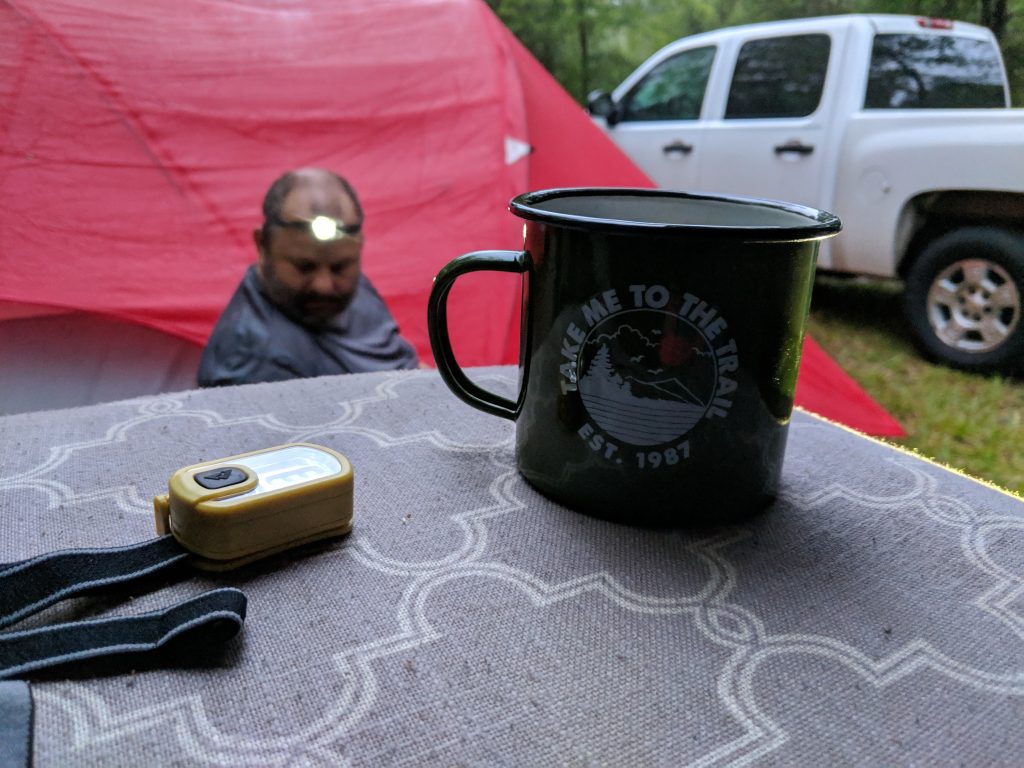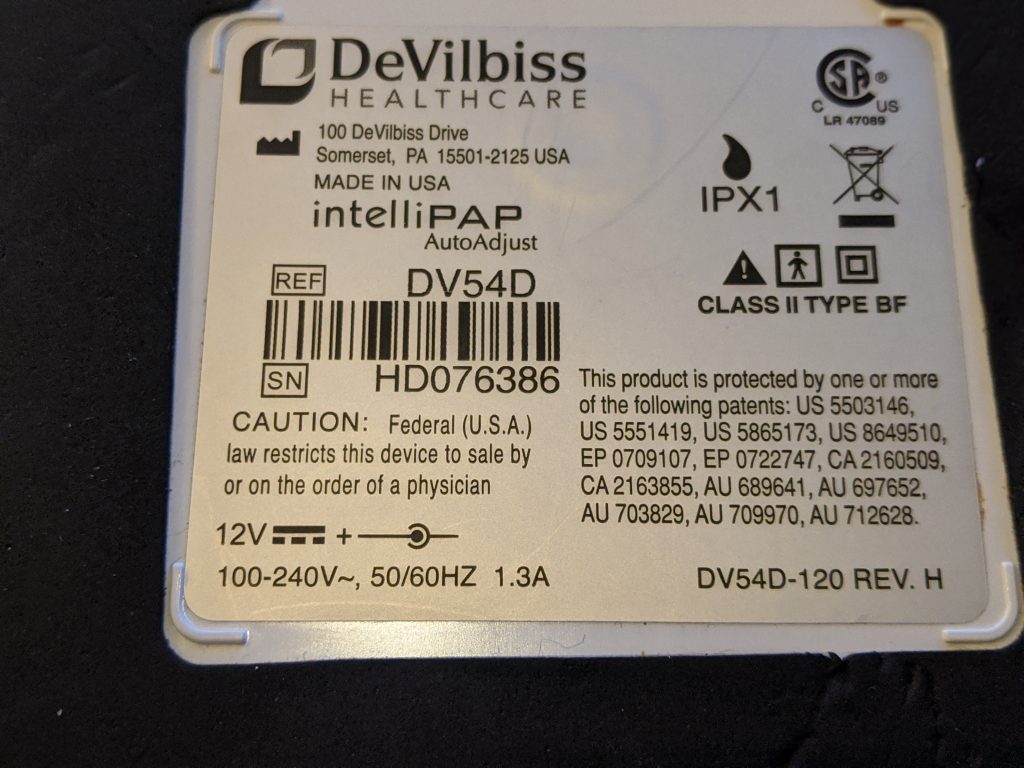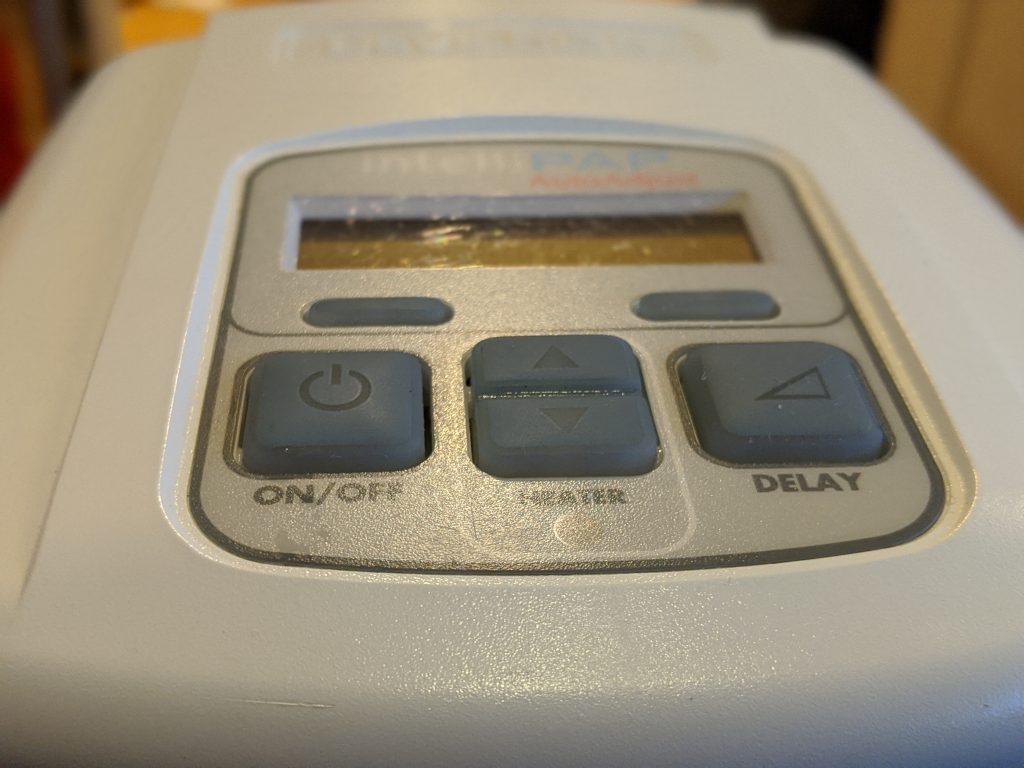If this content is useful, please take the time to share on social media, blogs, and forums. It helps us keep creating. Thank You!
CPAP is a necessity when camping. Sleep is so important.
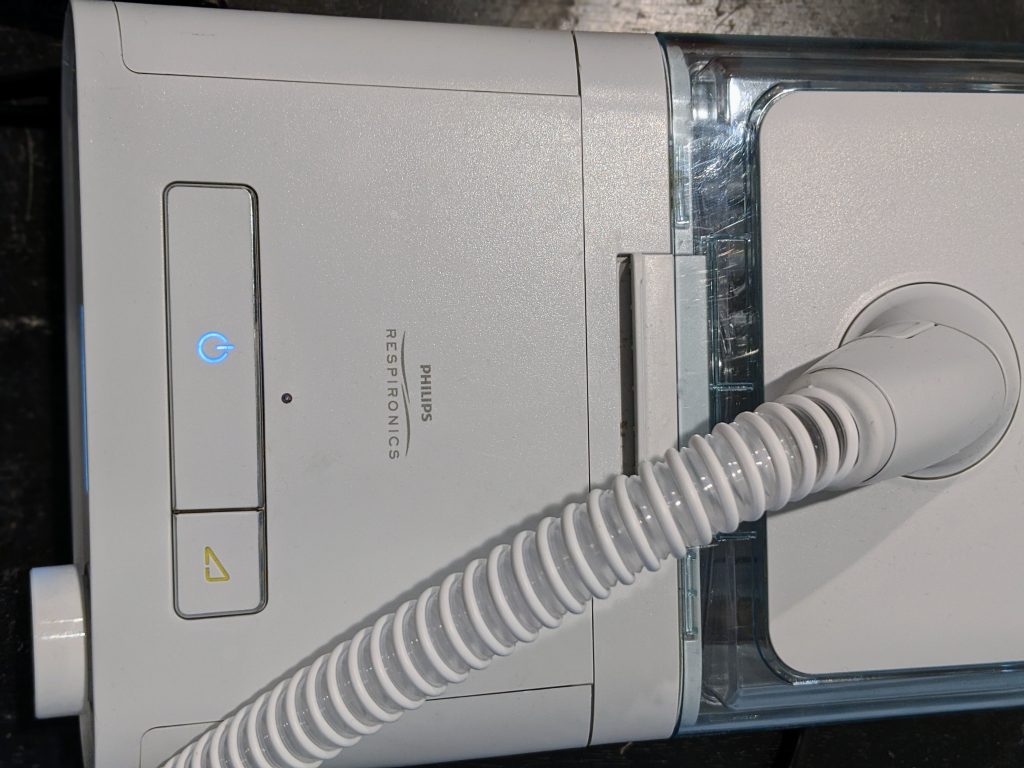
This question is near and dear to my heart because I actually use a CPAP machine when I’m camping. This has been somewhat of a challenge because I have not only camped in my RV but since my kids are in the Scouts program I have done lots of camping in all kinds of weather using my CPAP machine in tents. This is can cause some really interesting situations when using a CPAP without controlled temperature and humidity. This does not even include trying to sleep when your battery goes dead in the middle of the night.
Power requirements for a CPAP machine overnight
I like to use this Devilbiss CPAP machine when I went camping because I could run it for a while off-grid. I would hook it straight to a 12-volt battery using a barrel plug. This unit is rated at 1.3 amps at 12 volts, but would only draw a little less than 1 amp. This meant for a whole night I would use between 8 to 10 amp-hours. This was awesome, then we started doing more cold weather camping. I would have water in my CPAP hose, which is no fun and no sleep is to be found. I researched the problem and this led me to look for a heated hose.
Heated hose and heated humidifier
After several miserable camping trips, I made a call to 1-800-CPAP to discuss my options for camping. The Devilbiss system I had would require a different heated hose system that used more power, but my Philips Respironics machine had an optional head hose. I just need to add the humidifier to allow the unit to have a place to plug in the hose with an added electrical port.
Once plugged in a menu appears on the unit allowing the user to set the heater hose from setting 0 ( OFF ) to setting 5 ( High ). On a cold night, I set it at 5 and it helps. The power usage goes up though.
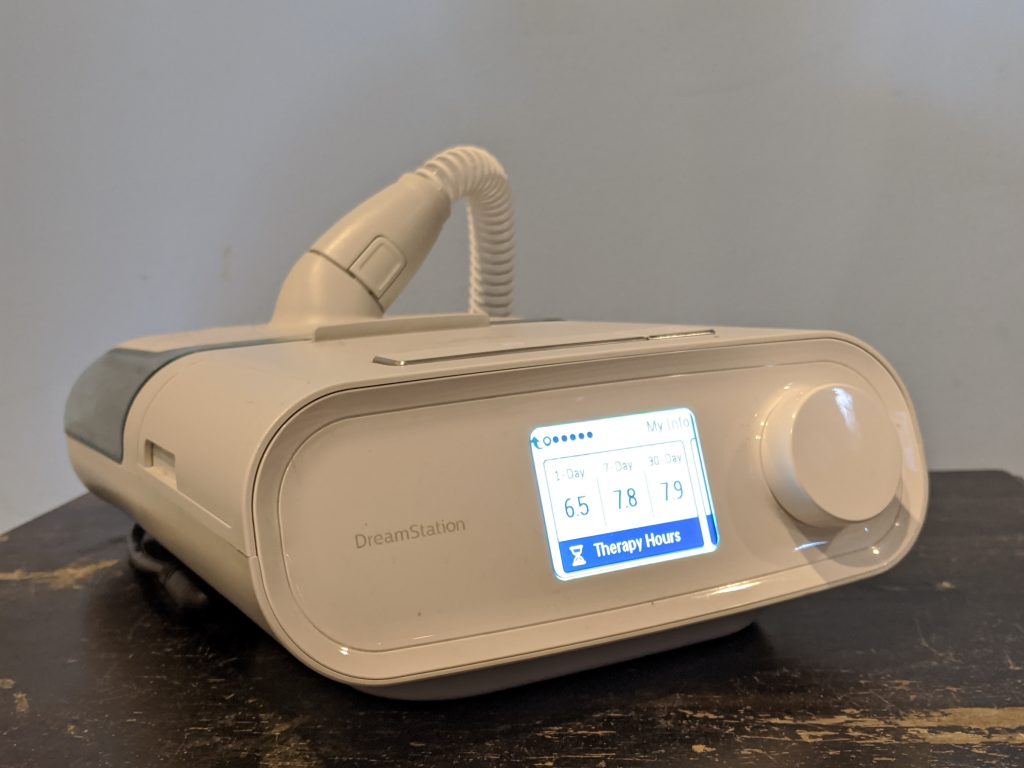
Rainout and other CPAP camping issues
As I found out when camping both in my RV and in tents, colder temperatures can cause issues for CPAP machines used to treat sleep apnea and other conditions. When the weather gets really cold, your warm breaths can condense inside of your CPAP hose and cause water to be breathed in. I have found that purchasing a heated hose for my machine was able to alleviate much of this issue.
Once I got a heated hose, my energy requirements quadrupled. There are 5 heating settings on my machine, but at setting 5 my battery was unable to keep up for one night. Given we were camping under complete shade for days. The next morning I moved my RV into the sun and the batteries were filled quickly.
